Daily insights from our National Conference 2025 - day one
Meeting the moment. Shaping the future.
Day one wrap up | Tuesday 30 September 2025
Kickstarting the Ageing Australia National Conference
We welcomed 2,342 attendees to the Ageing Australia National Conference 2025. Opening the event was Ageing Australia Chair Mick Reid AM along with a Welcome to Country by Tribal Experiences. The Chair outlined the Board’s responsibility to represent Australia’s diverse aged care providers, from small to large organisations, offering a variety of services across the aged care sector. He called for a focus on delivering dignity, respect and opportunity for older Australians and noted that aged care reform requires unified leadership and collaboration across government, providers and communities.
We were also honoured to hear from both sides of politics, with Minister for Aged Care and Seniors Sam Rae and Shadow Minister for Health and Aged Care Anne Ruston. Demographer Mark McCrindle highlighted global trends, while respected Australian journalist and conference MC Virginia Trioli facilitated a conversation with aged care leaders. With high energy and loads of enthusiasm, it was a fantastic start to Australia’s premier aged care event.
Session highlights
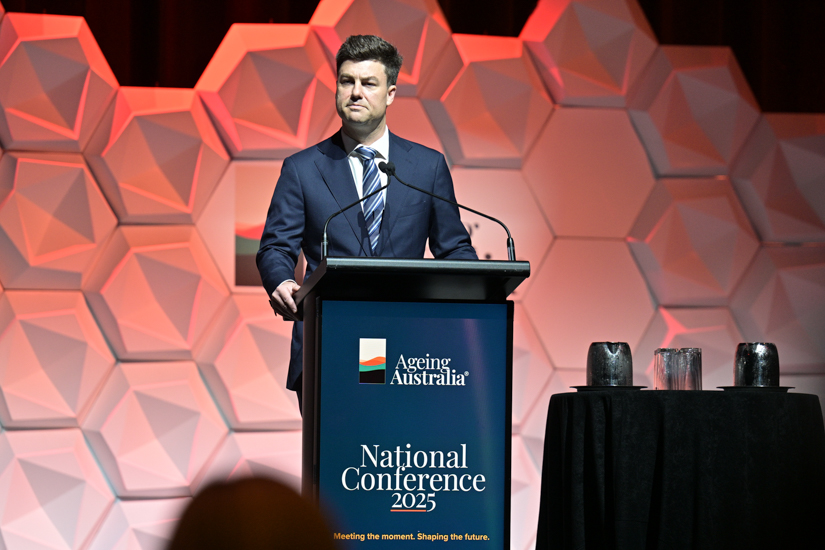
Minister for Aged Care and Seniors
New consultation paper released on accommodation pricing
Minister Sam Rae MP announced the Department has released a Residential Aged Care Accommodation Pricing Review Consultation Paper. This follows the release of the AN-ACC residential aged care pricing information.
The subsequent analysis by Ageing Australia and StewartBrown highlighted concerns about whether pricing adequately covers sector cost increases. Reforms of this magnitude require careful planning and consultation, to ensure the sector is not just sustainable, but investable.
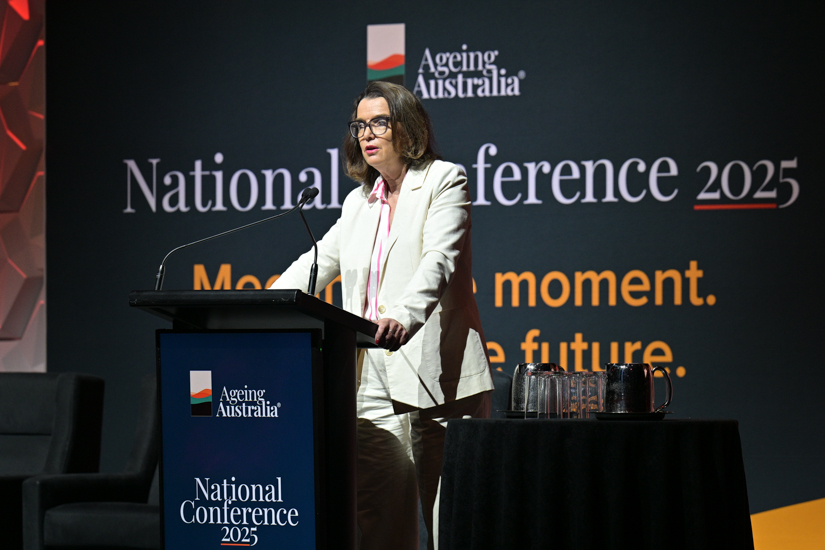
Shadow Minister for Health and Aged Care
Key policy areas still need work
Shadow Minister for Health and Aged Care Anne Ruston acknowledged the future and current challenges and opportunities in aged care. She emphasised the importance of strong policy, sustainable funding and workforce support to meet growing demand.
In acknowledging the great work that has been undertaken so far, the Shadow Minister outlined we still have more to do to for a world-class aged care sector.
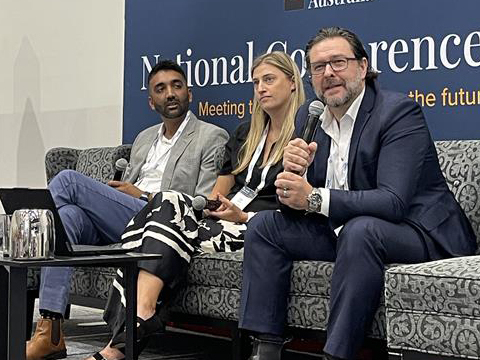
No AI strategy is an AI strategy – but is it a good one?
PwC leaders urged providers to embrace artificial intelligence (AI) with purpose. They argued that responsible AI strategies can reduce time spent on administration, enhance resident care, improve safety and transparency, and help reimagine services.
Shaping AI with governance, workforce investment and clear intent is vital to not falling behind.

StewartBrown
Financial impact of reform in support at home
Stuart Hutcheon, Managing Partner at StewartBrown, said government policy changes are driving price increases in home care and how these are communicated to the public will be critical.
StewartBrown’s March financial performance survey showed providers needed a 9.5 per cent return on home care packages to remain viable and sustainable. Hutcheon advised providers to examine their organisation’s scale, client mix and package locations, noting that profitability under the new rules will depend on how teams and packages are managed.
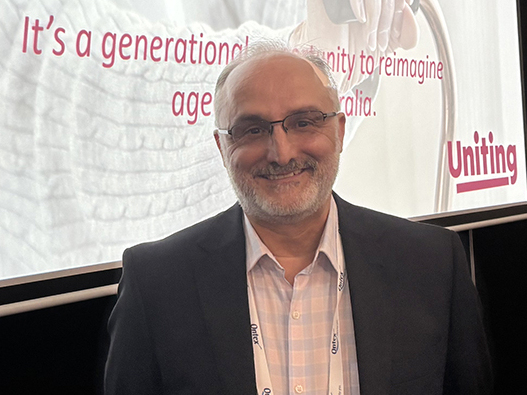
Uniting NSW.ACT
A once-in-a-generation re-imagining
Uniting NSW.ACT Director Seniors Services Saviour Buhagiar said they are re-imagining care through a person-centred approach grounded in inclusion and active collaboration with staff and clients. Their strategy focuses on high-quality care, home care innovation, integrated services and supporting communities of need.
Uniting NSW.ACT remains focused on shaping a future where care is more connected, rights-based and community-led. For Uniting NSW.ACT, reform must begin where it matters most – in the home.
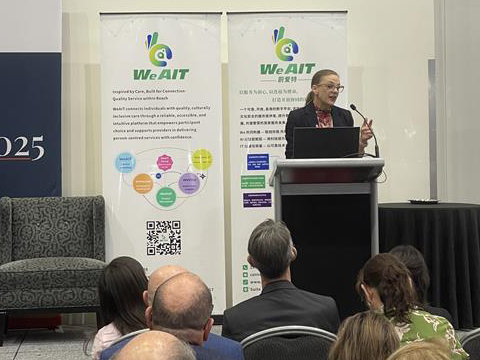
Aged Care Silverchain Care
Silverchain’s AI journey in home care
Carolyn Bell from Silverchain shared her journey adopting AI to enhance home care. With a 130-year history and national footprint, Silverchain are piloting tools like transcription for clinical notes, Microsoft Copilot for productivity, wound care decision support and progress note summarisation. Governance, transparency and clinician input underpin their approach.
Carolyn said use of artificial intelligence (AI) saves time, strengthens safety and complements service delivery, enabling staff to focus on clients.

Leaders optimistic about the future
The discussion explored the Aged Care Act 2024, the need for culturally safe care for Aboriginal and Torres Strait Islander peoples, rights-based care, sector readiness and workforce sustainability.
While there are ongoing challenges in regional access, training and co-payment equity, there was a sense of optimism, especially around collaboration.
Building a sustainable support at home model: Overlooked opportunities
Jason Howie, Partner, Pride Aged Living
According to Jason, success in the new support at home model will depend less on size and more on process. He noted many providers are prepared, though marketing and revenue systems will continue to shift. “Retirees may find cheaper options outside the system, and clinical demand will grow, putting pressure on skilled services,” he said.
Jason urged providers to embrace specialisation, adopt traditional marketing strategies and explore opportunities such as mental health services.
Support at home reset: 10 strategic moves to stay ahead
Jennene Buckley, Director, Enkindle Consulting
Jennene said the support at home reset demands providers think strategically about a sustainable future. With CHSP set to enter the market, providers must remain relevant through smart systems, safe care and a consumer-centred approach. Key actions include understanding service costs, listening to client expectations and building the workforce experience.
Jennene urged providers to find their point of difference, embrace workforce innovation, strengthen governance, invest in IT roadmaps and form strong partnerships to target new growth markets.
Aged care pricing unpacked
The team from the Independent Health and Aged Care Pricing Authority (IHACPA) gave an overview of the various costing studies from recent years. The team are focused on a transparent consultation process engaging providers and ‘users’ of aged care services.
Future priorities for IHACPA include the impact of the Aged Care Act 2024, safety and quality in aged care pricing and thin markets, as well as regional, rural and remote services. For information about costing models visit: Aged care costing | IHACPA.
HumanAbility launches new careers framework
Today, HumanAbility launched the Career Pathways Framework – the result of 18 months of in-depth collaboration with over 100 organisations from Tasmania to Western Australia as well as Ageing Australia.
This new, practical approach to workforce challenges maps pathways that align roles with necessary training, highlights opportunities for mobility, and supports progression and succession planning. The framework will be an important resource for attracting, retaining and developing skilled staff in the sector.
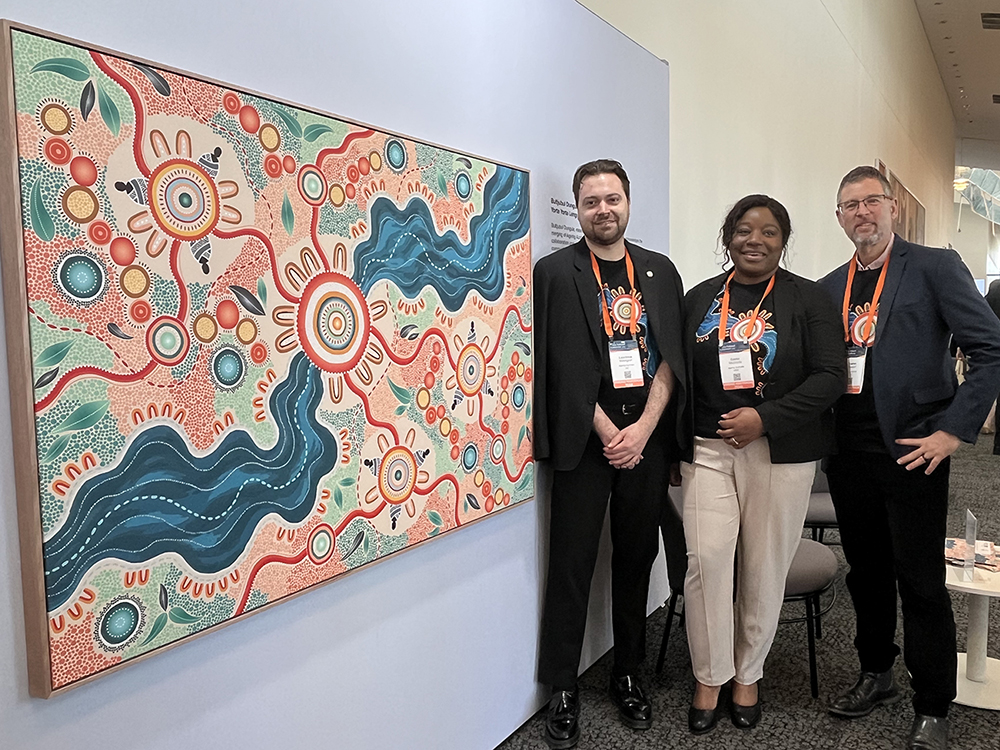
Reconciliation Action Plan
Reflect and connect with Ageing Australia’s RAP
We invite you to visit our reconciliation activation space, located between Hall Foyers 1 and 2.
The space showcases the artwork created for Ageing Australia’s Reflect Reconciliation Action Plan (RAP), alongside copies of the plan itself. It offers a moment for reflection, acknowledgement and connection with your own role in advancing reconciliation.
Day one gallery
Ageing Australia National Conference 2025 in the media
Australian Ageing Agenda, Minister announces room pricing inquiry, 30/9
Minister for Aged Care and Seniors Media, Speech from Minister Rae, Ageing Australia National Conference, 30/9
Mirage News, VIC Aged Care Homes Fail on End-of-Life Choices, 30/9






